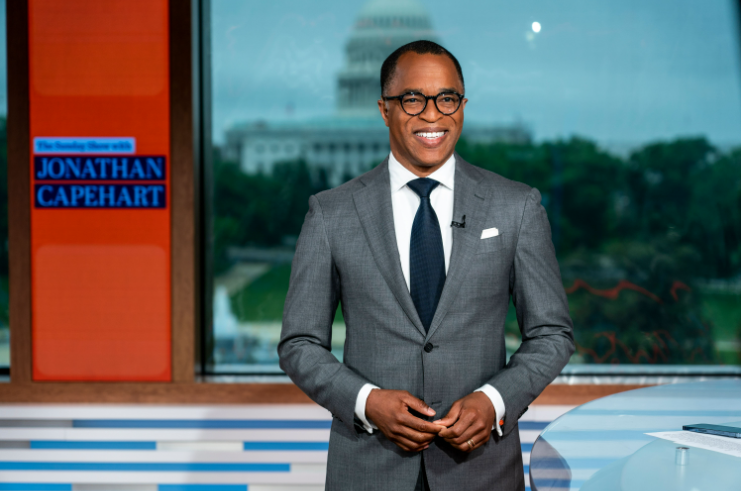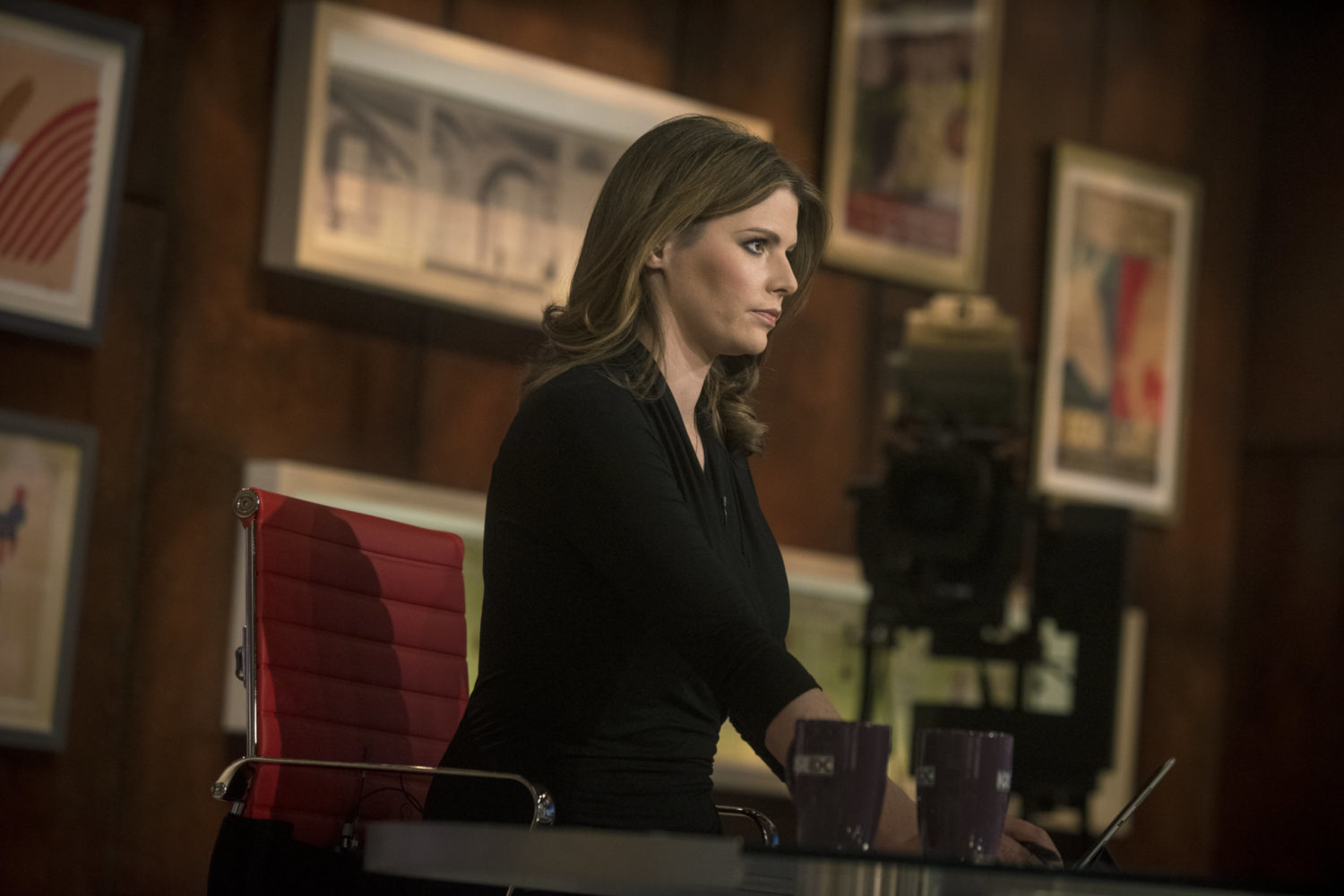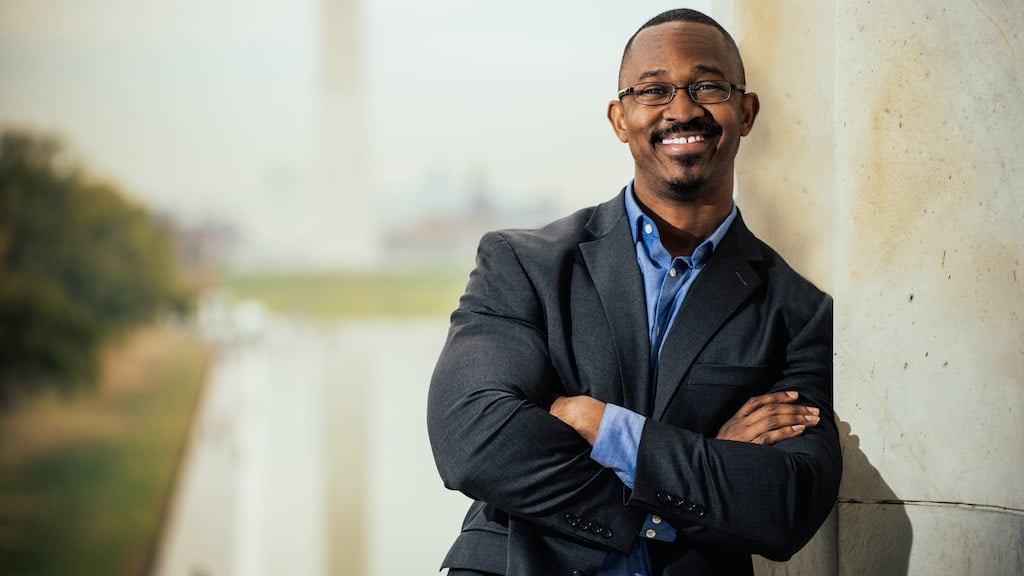More than two years after the premiere of his inaugural MSNBC show, The Washington Post opinion columnist Jonathan Capehart is expanding his cable-news presence as MSNBC launches a second hour-long Saturday show featuring the left-of-center journalist.
Capehart is the only Sunday morning political talk show host on a major news network who identifies as both Black and openly LGBTQ+. “Bringing my journalistic chops to the desk, but also bringing my full self to the desk, I hope, has been of benefit to the audience,” Capehart says. “I think it’s imperative that voices like mine—not just mine, but others who have different lived experiences—are put in these positions where we get to share our expertise.”
The new program, The Saturday Show With Jonathan Capehart, will begin airing this Saturday at 9 a.m. Capehart’s prior program, The Sunday Show With Jonathan Capehart, will now be broadcast at 9 a.m. on Sundays. We recently caught up with Capehart to discuss the Sunday show format, what he learned from the Trump era, and his hopes for his new show.
Let’s start by talking about your Sunday show. What do you hope viewers get out of it?
“So the goal of the show is right there in the name: The Sunday Show. Whenever you hear that phrase, The Sunday Show, you immediately go to those Sunday public affairs shows that people of a certain age used to gather around the television to watch [in order] to get caught up on the news [and] to hear what big thinkers or politicians were talking about. It makes you think of [NBC’s] Meet the Press. Having a show that airs between 10 a.m. and noon [when the program aired prior to this weekend] is in that same neighborhood.
“I wanted to do my version of a Sunday show that seeks to bring some light to the heat that’s out there in the political conversation. I’m an opinion writer; I don’t hide the fact that I have a point of view. But even though I have a point of view, I want to give the viewer the context that they need to understand the news that they’ve been consuming all week.
So the show is in some ways a very traditional Sunday show, but you bring your own left-of-center perspective as well?
“Yeah.
These Sunday shows have been around for a long time. Why do you think the format is still important in a media landscape that has changed so dramatically since Tim Russert was hosting Meet the Press?
“Tim Russert, in a lot of ways, is still the gold standard. To watch Tim Russert conduct an interview is like watching Leonard Bernstein conduct the Philharmonic. It was journalism at its best. It was the exercise of the First Amendment at its best. It was holding people accountable at its best. And I think that still, even though, let’s be honest, the viewership of the Sunday shows has been going down, people still go to those shows because that’s what they’re looking for.
“People who are watching Sunday shows are people who know what the news is: They know headlines, and they know maybe the top three things about this particular story. But they come to Sunday shows, and my show as well, because they want to understand the context of the story. Why is the story important? Why they should care? And then when it comes to a newsmaker interview, to hear from the newsmakers themselves—what they’re doing, what’s going on. And to have the person in the [host’s] chair be the advocate [for the viewer] in the sense that, ‘Okay, you said this, but you also said that. Please explain.’
What lessons have you taken from journalism in the Trump era that you are applying to your work as a Sunday show host?
“Well, here’s the thing. Unlike the other Sunday show hosts, I am an opinion writer. I am someone with a perspective. My job is to do the same thing that they do—reporting—but then I have the luxury and the privilege of being able to say, ‘This is what I think about what I just heard.’ And as a result of that, during the Trump years, I had no problem calling him out for lies, calling out his racism, you name it.
Let’s talk about the new Saturday show. What are the similarities and differences going to be with the two shows?
“I’m bringing the same sort of Sunday show ethos to Saturday. It is about adding some light to the heat—the national discussion, the social discussion, the political discussion, you name it. That sort of rigor will still be there on both days. My goal is to have Saturday be a little more creative in presenting the news and discussions to the audience.
“For instance, for the Sunday show, I did an interview with Wendell Pierce and Sharon D. Clarke about their revival of Death of a Salesman. On the surface, it’s just an interview about a revival of an American classic Broadway production. But then you add in the fact that Wendell and Sharon were the first Black people to play the Loman family, and you add in the fact that none of Arthur Miller’s script was changed. As a result, having a quintessentially American play like Death of a Salesman’s words come out of the mouths of Black people gives those words even more resonance, especially in the time we’re in now. So by sitting down and doing an interview with Broadway actors, I’m able to talk about this show while at the same time talking about critical race theory, voting rights, and economic policy—because after all, Death of a Salesman is about how the American Dream is so hard for a lot of people to reach.
“On Saturday, [the format will be more along the lines of] ‘What play is out there that is addressing fill-in-the-blank issue that we’re all talking about today? What movie? What piece of art? What artists?’”
This interview has been edited and condensed for clarity.


![Luke 008[2]-1 - Washingtonian](https://www.washingtonian.com/wp-content/uploads/2017/10/Luke-0082-1-e1509126354184.jpg)
















